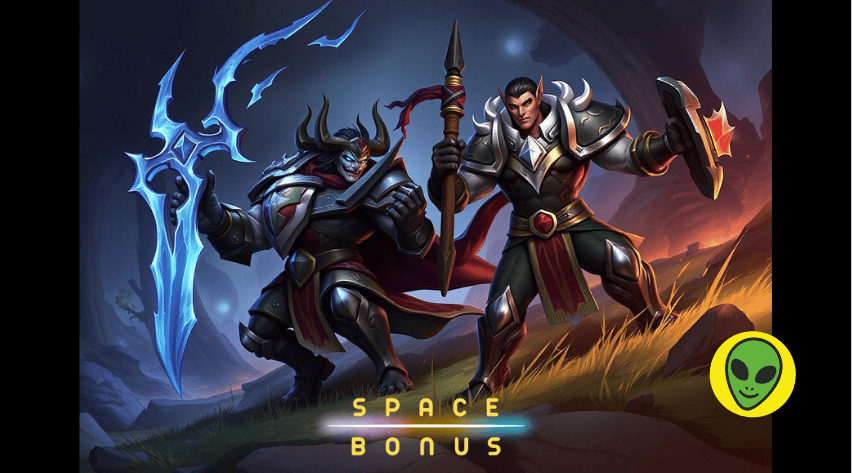Riot Games Allows Betting Sponsors for LoL and Valorant in 2025: What It Means

Last Updated: May 25, 2025
Riot Games Opens Doors to Betting Sponsors for LoL and Valorant in 2025
Introduction
In a groundbreaking move, Riot Games, the powerhouse behind League of Legends (LoL) and Valorant, has announced that starting in 2025, its partnered esports teams in the Americas and EMEA regions can collaborate with betting sponsors. This policy shift, confirmed by Riot’s COO of Esports, Whalen Rozelle, marks a significant departure from the company’s long-standing opposition to gambling partnerships. For fans and bettors, this opens new doors in the esports betting landscape, particularly for LoL betting and Valorant betting. But what does this mean for teams, the competitive scene, and the future of esports? Let’s dive into this game-changing development and explore its impact on the industry.
Riot’s decision comes at a time when the online betting market is booming, with esports betting projected to hit $2.8 billion globally in 2025. By allowing teams to secure betting sponsorships, Riot aims to bolster financial stability for organizations while maintaining strict oversight to protect competitive integrity. This article unpacks the details of the policy, its implications, and what bettors can expect from this new era of esports. For the latest insights on trusted betting sites, visit www.spaceofbonus.com.
Why Riot Games Changed Its Stance
Historically, Riot Games has been a gatekeeper of integrity, prohibiting betting and cryptocurrency sponsorships to shield its young audience and maintain a clean esports ecosystem. However, economic pressures in the esports industry, including rising team costs and declining viewership for some titles, have pushed Riot to reconsider. Whalen Rozelle emphasized that the decision followed “careful study and planning” to balance new revenue streams with fan experience and competitive fairness. Esports betting is a lucrative market, and Riot’s move aligns LoL and Valorant with other titles like Counter-Strike 2 (CS2) and Dota 2, where betting sponsors are common.
The policy applies only to partnered teams in the League of Legends Championship Series (LCS), League of Legends EMEA Championship (LEC), Valorant Champions Tour (VCT) Americas, and VCT EMEA. Notably, Riot has imposed strict rules: betting brands cannot appear on official broadcasts, social media, or team jerseys, ensuring Riot’s platforms remain betting-free. All sponsors must pass a rigorous vetting process to meet Riot’s standards for integrity and comply with local regulations, addressing concerns about match-fixing and fan trust.
This shift reflects a broader trend in esports, where financial sustainability is critical. As noted in industry reports, betting sponsorships have been a cornerstone for games like CS2, and Riot’s cautious embrace signals a maturing industry. However, not all teams are on board—Movistar KOI, for instance, has stated it will not pursue betting partnerships, highlighting the divisive nature of this change.
Impact on Teams and the Esports Ecosystem
For esports organizations, this policy opens a significant revenue stream. Teams like Team Liquid, Fnatic, and G2 Esports can now partner with Riot-approved betting platforms, potentially easing financial burdens. These sponsorships could fund better training facilities, player salaries, or marketing efforts, strengthening the competitive scene. However, the restrictions on branding—such as no logos on jerseys or Riot broadcasts—mean teams must get creative, likely promoting sponsors through social media or off-stream content.
The policy also raises questions about competitive balance. Teams in the Americas and EMEA may gain a financial edge over those in APAC or China, where betting sponsorships are not yet permitted due to stricter regulations. This could lead to disparities in team investment, potentially affecting global tournaments like the LoL World Championship or VCT Masters. Riot has pledged to monitor the policy’s impact and refine it if needed to ensure fairness.
For the esports ecosystem, this move could normalize betting sponsorships across other publishers. If successful, it may prompt companies like Blizzard or Epic Games to reconsider their stance, creating a more unified approach to online betting in esports. However, critics warn of risks, including potential match-fixing scandals, as seen recently in CS2, and the influence of gambling on younger fans. Riot’s updated Esports Global Code of Conduct, which holds professionals accountable for associates’ actions, aims to mitigate these concerns.
What This Means for Esports Bettors
For bettors, Riot’s decision could expand the LoL betting and Valorant betting markets significantly. With major teams securing betting sponsors, platforms like Bet365 or Stake may offer more competitive betting odds and diverse markets, such as match winners, map scores, or player stats. The influx of sponsorship money could also lead to bigger tournaments with higher stakes, attracting more betting interest. For example, LoL’s 2024 World Championship drew over 6 million viewers, and increased financial backing could amplify such events in 2025.
Bettors should focus on trusted betting sites that align with Riot’s vetted partners to ensure security and fairness. Platforms reviewed on www.spaceofbonus.com offer tools like odds comparison and live betting options, ideal for fast-paced games like Valorant. While some platforms may provide introductory offers, the focus should be on choosing sites with strong reputations and regulatory compliance to avoid risks associated with unregulated markets.
To succeed, bettors can adopt strategies like researching team form on sites like Liquipedia, tracking roster changes (e.g., Team Liquid’s V-Tune signing for Dota 2), and leveraging in-play betting for real-time opportunities. Staying informed about Riot’s approved sponsors and their impact on team performance will be key to making smart wagers.
Challenges and Controversies
The decision has sparked debate in the esports community. Fans on X have expressed mixed feelings, with some praising the financial boost for teams and others decrying the normalization of gambling, especially given LoL and Valorant’s young fanbase. A 2023 Statista report notes that 24% of U.S. gamers are under 18, raising concerns about exposure to betting. Critics also point to past controversies, like Riot’s 2020 Saudi-backed sponsorship backlash, as evidence of potential fan pushback.
Match-fixing is another worry, especially after recent CS2 scandals involving ATOX Esports. Riot’s vetting process and updated conduct code aim to address this, but the risk remains. As one industry analyst noted, “Riot’s restrictions show they’re wary of backlash, but the move is pragmatic given economic pressures.” The success of this policy will depend on Riot’s ability to enforce standards and maintain trust.
Choose platforms with licenses and strong security. Check www.spaceofbonus.com for reviews of secure betting platforms to protect your funds and data.
Set a budget and use tools like deposit limits. Resources like 1-800-GAMBLER can help if you need support.
Meet Our Editor
 Alex
AlexEditor and Analyst
I’m Alex, your guide to the ever-evolving world of esports and online betting. With a passion for gaming and years of analyzing industry trends, I’m here to break down the latest news, like Riot’s betting sponsor policy, with clear insights. Trust me to deliver reliable betting tips and platform reviews to keep you ahead in the fast-paced world of esports betting.
.png)